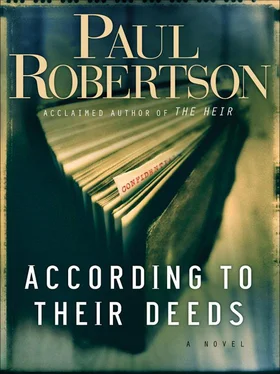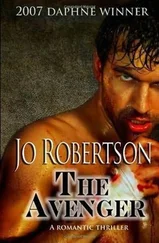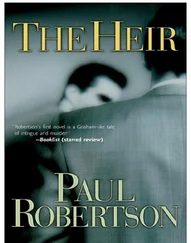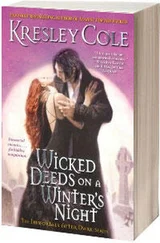Paul Robertson - According to Their Deeds
Здесь есть возможность читать онлайн «Paul Robertson - According to Their Deeds» весь текст электронной книги совершенно бесплатно (целиком полную версию без сокращений). В некоторых случаях можно слушать аудио, скачать через торрент в формате fb2 и присутствует краткое содержание. Жанр: Криминальный детектив, на английском языке. Описание произведения, (предисловие) а так же отзывы посетителей доступны на портале библиотеки ЛибКат.
- Название:According to Their Deeds
- Автор:
- Жанр:
- Год:неизвестен
- ISBN:нет данных
- Рейтинг книги:4 / 5. Голосов: 1
-
Избранное:Добавить в избранное
- Отзывы:
-
Ваша оценка:
- 80
- 1
- 2
- 3
- 4
- 5
According to Their Deeds: краткое содержание, описание и аннотация
Предлагаем к чтению аннотацию, описание, краткое содержание или предисловие (зависит от того, что написал сам автор книги «According to Their Deeds»). Если вы не нашли необходимую информацию о книге — напишите в комментариях, мы постараемся отыскать её.
According to Their Deeds — читать онлайн бесплатно полную книгу (весь текст) целиком
Ниже представлен текст книги, разбитый по страницам. Система сохранения места последней прочитанной страницы, позволяет с удобством читать онлайн бесплатно книгу «According to Their Deeds», без необходимости каждый раз заново искать на чём Вы остановились. Поставьте закладку, и сможете в любой момент перейти на страницу, на которой закончили чтение.
Интервал:
Закладка:
“Yes, sir.” Alice’s smile was stretched at its ends. “And you had a call. Mr. Abercrombie.”
“The man who bought Moby-Dick?”
“Yes, sir. I think he has a complaint about Angelo.”
“Is Angelo here?”
“Up in his room.”
“Thank you.”
“Alice said Mr. Abercrombie called?”
“He did,” Dorothy said. “I talked with him briefly, but he wanted you.”
“Was there a problem?”
“He said Angelo was touching things in his house.”
“I’ll talk to Angelo.”
“Angelo?”
“Hey, boss.” He was already back in his un-business clothes.
“How did it go?”
“That delivery? It was okay.”
“Any problems?”
“Does that man say there was problems?”
“I haven’t talked with him,” Charles said.
“There was no problems, boss.”
Charles looked into Angelo’s face for any reaction. There was none.
“Mrs. Beale talked to him-he called here. He told her you were touching things in his house.”
Silence.
“What kind of things did he have?”
“I didn’t touch anything, boss.”
“Did he have things by the door? How far in did you go?”
“I went in the door two steps. I did what you said to be nice.”
“Were there things close by?”
Angelo shrugged. “He had those little statue things and glass and metal.”
“Antiques. Or we could call them Art Objects.”
“Yeah, he had those.”
“Did you touch them?”
“I don’t touch nothing ever, boss.”
“Did he think you touched them?” Charles asked.
“Hey, boss, I don’t know what people think.”
“You really do know, though, don’t you? You could tell he was looking at you and you knew what was going through his mind, because you see it all the time. I’m sorry, Angelo, that Mr. Abercrombie was suspicious of you. If you say you didn’t touch anything, then I believe you.”
“You think what you want.”
“Maybe we could teach you to smile.”
Angelo scowled.
“What did he say?” Dorothy asked.
“He said he didn’t, and I believe him.”
“What about Mr. Abercrombie?”
“I suppose he saw what he thought he would see.”
“I hope Angelo isn’t scaring everyone.”
“At least he didn’t actually grab any of Mr. Abercrombie’s objets d’art and run them down to Mario the Fence in the back of the Italian restaurant. Or he could have just taken Moby-Dick to Mario in the first place.”
“He wouldn’t have.”
“No, he wouldn’t, since Mario only does jewelry and iPods. He’d have to know someone like Norman Highberg instead. All right, let me find Mr. Abercrombie’s telephone number.”
“I have it,” Dorothy said.
“I’ll call him and smooth the ruffled feathers. Oh, Dorothy, I actually got an expression on Angelo’s face.”
“What?”
“I suggested he learn to smile.”
Dorothy brightened. “And did he smile?”
“Not exactly.”
And did you have an interesting morning with Mr. Kelly?”
“It might be worth another croustade de veau braise.”
EVENING
“Something simple this evening, Philippe,” Charles said. “What would you suggest?”
The waiter looked carefully around. “A hamburger, monsieur.”
Charles was shocked. “A what?”
“A hamburger,” he said even quieter than before. “The chef tried today to make a new dish, um…” He struggled to find the word. “It is like meatloaf.” He shook his head. “She-” he glanced across the room at the hostess-“she did not like it.”
“It wasn’t good?” Dorothy asked.
Philippe shrugged. “It was not so good. But the ground beef is very good. In it he has garlic and tomato and basil. I will tell him to make a hamburger for you.”
“Well, if that’s all right.”
“Yes,” Philippe said. “Just don’t tell…” He nodded toward Antoinette.
“She might see it,” Dorothy said.
“If madame does not mind.” He blew out the candle on their table, leaving their corner even dimmer. “And for you?”
“I wonder if I should order french fries and a Coke.”
Philippe considered. “A baked potato? Or…” He paused, thinking carefully. “From yesterday, the soup was potato and leek. With mushrooms and shallots, and a touch of sherry. There is a little in the kitchen still. It is not so fresh, but for potatoes? So what if a potato is not fresh?”
“That sounds lovely,” Dorothy said.
Philippe withdrew on his dangerous mission into the Parisian dark.
“Here’s looking at you, kid,” Charles said.
As silverware clinked and some semblance of Edith Piaf played on speakers, he and Dorothy sipped their water and watched the room. There were diners who were obvious tourists, and others who likely were locals, and some from the suburbs or across the Potomac who had come for the food and atmosphere.
“I’m so glad to live here,” Dorothy said.
“It’s just right, isn’t it?”
“It is. It’s fun but not too much.”
“Alexandria is nicely American, and just a little French,” Charles said.
The illicit hamburger was stealthily delivered. Charles ate it furtively.
“And is there anything to say about Mr. Kelly?” Dorothy asked.
“Not really. I looked through the report about Derek, but I don’t want to describe it to you. I also asked about Derek’s desk. I don’t see yet how anyone could have done anything to it. And I don’t know yet why Mr. Kelly thought to ask Mr. Jones about it. Mr. Kelly said he asked around in general, although it sounds like rather a coincidence that he would happen to pick Galen Jones to talk to, or that he would even know of Galen Jones.”
“Another coincidence?”
“It makes me wonder if Mr. Kelly has some other source of information. If I could find out who he was talking to, it might answer some questions.”
“Could you ask him?”
“I might, but he would want to know why I was asking. So I’ll tread carefully for now.”
“Quick,” Dorothy said. “She’s coming.”
Antoinette approached like a cavalry charge, and Charles stuffed in the last bite of his hamburger.
“That finishes the trio. Montesquieu and Voltaire, and now Rousseau. Charles, you can be pithy: How would you compare them?”
“Is this a test of my vocabulary, Derek, or are you admitting you haven’t read them yourself?”
“I never admit anything.”
“Because you are like Voltaire. He was the bon vivant, the consummate Man of Letters, the biting wit. He admired enlightened monarchs and he despised religion, he hobnobbed with Frederick the Great and Catherine the Great and all the other Greats. He would have sat right here to play chess and discuss-well, himself.”
“How am I like Montesquieu?”
“Not temperamentally. He wasn’t subtle. But I think you share his insight into human nature. The Spirit of Laws introduces separation of powers as a form of government, because he knew how too much power in too few hands would lead to tyranny.”
“Although he didn’t think that was necessarily bad, Charles.”
“You admit that you’ve read him.”
“Some of it. The part where he said despotism was preferable in some circumstances.”
“More stable. I wouldn’t say he thought it preferable.”
“All right. And Rousseau?”
“You have nothing in common with him, Derek. Nothing at all. He was mystic, tragic and poor.”
“And I am practical, complacent and rich.”
“Your words, Derek, not mine.”
“Again, I admit nothing. And yet, Charles, I think Rousseau was the most influential of the three.”
“He didn’t care about government. He cared about the individual and how we build societies out of individuals. Always based on the individual. Now you have his Social Contract. That is the one you should read, Derek.”
Читать дальшеИнтервал:
Закладка:
Похожие книги на «According to Their Deeds»
Представляем Вашему вниманию похожие книги на «According to Their Deeds» списком для выбора. Мы отобрали схожую по названию и смыслу литературу в надежде предоставить читателям больше вариантов отыскать новые, интересные, ещё непрочитанные произведения.
Обсуждение, отзывы о книге «According to Their Deeds» и просто собственные мнения читателей. Оставьте ваши комментарии, напишите, что Вы думаете о произведении, его смысле или главных героях. Укажите что конкретно понравилось, а что нет, и почему Вы так считаете.











